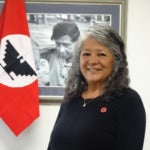
The Fair Labor Standards Act (FLSA) of 1938 established the federal minimum wage and overtime pay, created a standard work week, and prohibited children’s employment in dangerous conditions. Leaders passed the FLSA not only to ensure “a fair day’s pay for a fair day’s work,” as FDR said, but also to end a race to the bottom on wages and working conditions that were driving business competition.
The law raised wages for hundreds of thousands of workers at the time, but also deliberately excluded a number of industries, which uncoincidentally employed a large number of people of color and women. These exclusions continue to negatively affect opportunity for these groups today. The FLSA has suffered some additional wear and tear in recent decades. The failure of the minimum wage to keep pace with inflation, weak enforcement on issues such as wage theft and misclassification of independent contractors, and a failure to update the tipped minimum wage have minimized the rewards of work for many workers. While federal policy has been slow to respond, some state and local governments and businesses are addressing some of the FLSA’s weaknesses by increasing wages and improving job standards in sectors such as domestic and gig work, among others. What innovations can create a more just economy that rewards work fairly? What lessons can we learn from the FLSA and its history to help us restore the commitment to a fair day’s pay for a fair day’s work? Join the Aspen Institute Economic Opportunities Program for a discussion on “The Rewards of Work: Lessons from the Fair Labor Standards Act,” the second part in a five-part series titled, “The History and Future of U.S. Labor Law: Conversations to Shape the Future of Work.”

David Weil @profsheena
Former Administrator, Wage and Hour Division, U.S. Department of Labor; Dean and Professor, The Heller School for Social Policy and Management, Brandeis University @TheHellerSchool
David Weil is dean and professor at the Heller School for Social Policy and Management at Brandeis University. Prior to joining the Heller School, he was appointed by President Barack Obama to be the administrator of the Wage and Hour Division of the U.S. Department of Labor and was the first Senate-confirmed head of that agency in a decade. He led the Wage and Hour Division from 2014 to January 2017. He was nominated to return to that post by President Joe Biden in 2021. Weil is an internationally recognized expert in employment and labor market policy, along with regulation, transparency policy, and the impacts of industry restructuring on wages, employment, and work outcomes. He has advised government agencies at the state and federal levels and international organizations on employment, labor, and workplace policies. He is the author of more than 125 articles and five books including “The Fissured Workplace” (Harvard University Press). He has received many awards including the Frances Perkins Intelligence and Courage Award. Weil received his bachelor’s degree at Cornell University and his master’s and doctorate degrees in public policy at Harvard University.

Rebecca Dixon @RebeccaDNELP
Executive Director, National Employment Law Project @NELPNews
The National Employment Law Project (NELP) is led by Executive Director Rebecca Dixon. Rebecca is a respected national leader in federal workers’ rights advocacy and the go-to resource for state and local worker movements centered on racial, gender, and economic justice and dignity in the workplace. Rebecca’s motivation for advancing workers’ rights and commitment to economic justice is deeply rooted in her lived experience growing up in rural Mississippi at the intersection of race, class, and gender—characteristics that have long defined our ability to participate in our democracy and economy. As the descendant of enslaved people and daughter of sharecroppers and domestic workers, Rebecca knows firsthand what is lost when workers of color are relegated to the lowest rungs of our labor market, without respect, rights, and protections.
Prior to taking the helm in early 2020, Rebecca served on NELP’s executive management team as chief of programs. Since joining NELP in 2010, she has advanced NELP’s growth and impact while serving in a number of positions, including policy analyst and senior staff attorney. During the Great Recession and its aftermath, Rebecca was a leader in winning unprecedented state unemployment insurance (UI) coverage expansions in 20 states and multiple extensions of federal emergency UI benefits for the long-term unemployed.
Rebecca is in great demand for her thought leadership at the intersection of labor and racial equity. In 2012, she was selected by the State of New York for its Empire State Leadership Fellows program and served in the Office of the Governor in its Labor and Civil Rights Division. She is a board member of the Hope Enterprise Corporation, the Jessie Smith Noyes Foundation, and the Women’s Institute for Science, Equity and Race; a member of the Georgetown Center for Public & Nonprofit Leadership Racial Equity Working Group, the Economic Analysis and Research Network in the South, and the Insight Center for Community Economic Development’s Closing the Racial Wealth Gap Initiative and Expert of Color Network; and a past member of the USDA Food and Nutrition Service and Supplemental Nutrition Assistance Program (SNAP) “New Faces” of SNAP workgroup.
Rebecca holds bachelor’s and master’s degrees in English from Duke University and a law degree from Duke University School of Law.

Michael Lastoria @__lastoria
Co-Founder and CEO, &pizza @andpizza
Michael Lastoria is an American serial entrepreneur and co-founder of &pizza, a creatively led, mission-driven, culture carrying, pizza chain voted one of Fast Company’s Most Innovative companies in 2018 and 2019 for Social Good. Referred to by Bloomberg as “what Jesus might look like if he walked in a Yohji Yamamoto show,” Lastoria grounds &pizza in a commitment to better flavor, quality ingredients, livable wages, and real actions.
Lastoria has appeared on Fox Business, CNBC, MSNBC, and Yahoo, and has been featured in Forbes, AdWeek, the New York Times, and the Washington Post as a distinguished entrepreneur and thought leader in the industry. Speaking on topics including the value of design-based thinking, innovation, and entrepreneurship, Lastoria has talked at Harvard Business School, the George Washington University, and Georgetown University to inspire the next generation of business leaders. Lastoria co-founded Innovation Ads, which sold to a private equity firm in 2006, and JWALK, which sold to beauty powerhouse Sheiseido in 2017, before starting &pizza.
Lastoria is a fair wage fighter and member of the advocacy network Business at a Fair Minimum Wage. He’s promoted increases in minimum wage across the Mid-Atlantic and Northeast and with Barack Obama’s Secretary of Labor, Thomas Perez. He introduced the Raise the Wage Act with Senator Bernie Sanders, House Minority Leader Nancy Pelosi, and Senator Chuck Schumer in 2016 and 2017. At Lastoria’s direction, &pizza was the first national restaurant chain to commit to a $15 minimum wage and has donated to over 1,000 local causes aligned with the company’s core values.
Lastoria has been identified as one of the country’s top executives, listed in QSR’s 2019 and 2020 Readers’ Choice Awards as a Most Admired Fast-Casual Leader, as the 2018 Icon of Culture by ILC, on Nation’s Restaurant News’ Annual Power List in 2018, 2019, 2020, and 2021, on Fast Casual’s Movers and Shakers List in 2018, 2019, 2020, and 2021, in the Washington Business Journal’s 40 Under 40, and as the Small Business Council of America’s Business Person of the Year in 2017.

Teresa Romero @UFWPresident
President, United Farm Workers @UFWupdates
The first Latina and the first immigrant woman to become president of a national union in the United States, Teresa Romero replaced Arturo S. Rodriguez as the third president of the United Farm Workers of America (UFW) in December 2018. Formerly the union’s No. 2 officer as secretary-treasurer, she has years of experience overseeing the complex financial management, administrative, staff recruitment, personnel, fundraising, IT, and social media operations of a far-flung organization involved in field organizing, contract bargaining and administration, legislative and legal affairs, and far-reaching international initiatives. Teresa worked closely with elected UFW leaders as chair of the union’s audit and finance committee. She ran fundraising efforts that collected $1 million to build the UFW’s new state-of-the-art 10,294-square foot facility in Salinas, California, serving the largest concentration of unionized farm workers in the nation. Before joining the UFW, she managed a construction company and a law firm that helped workers with immigration and workers’ compensation claims. Teresa is an immigrant from Mexico who is proud of her US citizenship and Mexican and Zapotecan heritage. She has played an important part in many recent successful union efforts and is admired by her peers for her work ethic, calm competence, organizational skills, ability to build relationships, and “Si Se Puede!” spirit.
For the last few months, Teresa has attended several immigration negotiation meetings for the Blue Card legislation sponsored by Congresswoman Zoe Lofgren. This legislation would give farmworkers and their families a path to citizenship if they have worked and continue to work in the agricultural industry for a certain number of years.
In May 2019, she received the Ohtli award by the first Mexican woman ambassador in the US. This award is given on a yearly basis to Mexican citizens who work in the US and help promote their culture while opening paths for other Mexican nationals. As president of the UFW, she has been in discussions with the Mexican government to help put emphasis on the dairy and agricultural industries that refuse to hire woman. She is dedicated to changing that type of atmosphere and create a system to apply in both the US and Mexico to hire woman while also helping create an environment in which woman are no longer enduring verbal, mental, and sexual abuse. Teresa is aware and humbled by the fact that many farmworker women see themselves in her. She’s helping pave the way and empowering women. Si Se Puede!

Ben Zipperer @benzipperer
Economist, Economic Policy Institute @EconomicPolicy
Ben Zipperer joined the Economic Policy Institute (EPI) in 2016. His areas of expertise include the minimum wage, inequality, and low-wage labor markets. He has published research in the Quarterly Journal of Economics and the Industrial and Labor Relations Review and has been quoted in outlets such as the New York Times, the Washington Post, Bloomberg, and the BBC.
Prior to joining EPI, Zipperer was research economist at the Washington Center for Equitable Growth. He is a senior research associate at the Center for Economic and Policy Research, a research associate at the Center on Wage and Employment Dynamics at the University of California, Berkeley, and an associate at the Johns Hopkins Bloomberg School of Public Health.

Noam Scheiber @noamscheiber
Labor Reporter, The New York Times @nytimes
Noam Scheiber is a Chicago-based reporter who covers workers and the workplace. Before coming to the New York Times, he spent nearly 15 years at The New Republic magazine, where he covered economic policy and three presidential campaigns.
His book, “The Escape Artists,” is a narrative of the Obama administration’s efforts to save the economy from the Great Recession. He holds a master’s degree in economics from the University of Oxford, where he was a Rhodes Scholar, and undergraduate degrees in math and economics from Tulane University.
U.S. labor laws passed in the last 100 years improved job quality for millions of workers, establishing and enhancing bargaining rights, wages, opportunities, and workplace safety while also helping to create the world’s largest economy and middle class. These laws did not redound to the benefit of all workers and too often excluded women, people of color and immigrants from their protections. In many ways, these laws were the codification of a social contract across class in the U.S., creating the conditions for economic progress with a mostly common purpose. Today, however, the power of these laws has eroded and the rights they once afforded workers–to have a voice in the workplace, to be safe from harm, to access opportunity regardless of social status, to earn a decent living–have diminished. As a result, millions of workers in the U.S. today find themselves immersed in the fight, like many workers before them, to access opportunity and improve job quality for themselves and future generations.
The future of work will be shaped by what we do now, just as the labor laws passed long ago have influenced opportunity, employment and workplaces today. Understanding our past is, therefore, vital to charting the course for what we want work and job quality to look like tomorrow and decades from now. Join The Aspen Institute Economic Opportunities Program for this five-part discussion series, The History and Future of U.S. Labor Law: Conversations to Shape the Future of Work, where we will learn about and reflect on the history of U.S. labor law, examine current implications and challenges, and discuss how we shape a future of work that provides opportunity and dignity to all.
The Economic Opportunities Program’s Opportunity in America discussion series has moved to an all-virtual format as we all do what we can to slow the spread of COVID-19. But the conversations about the changing landscape of economic opportunity in the US and implications for individuals, families, and communities across the country remain vitally important. We hope you will participate as we bring our discussions to you in virtual formats, and we look forward to your feedback.
We are grateful to Prudential Financial, Walmart, the Surdna Foundation, the W. K. Kellogg Foundation, Bloomberg, and the Mastercard Center for Inclusive Growth for their support of this series.
The Economic Opportunities Program advances strategies, policies, and ideas to help low- and moderate-income people thrive in a changing economy. Follow us on social media and join our mailing list to stay up-to-date on publications, blog posts, events, and other announcements.